WW1: National Archives letters reveal appeals against conscription
- Published
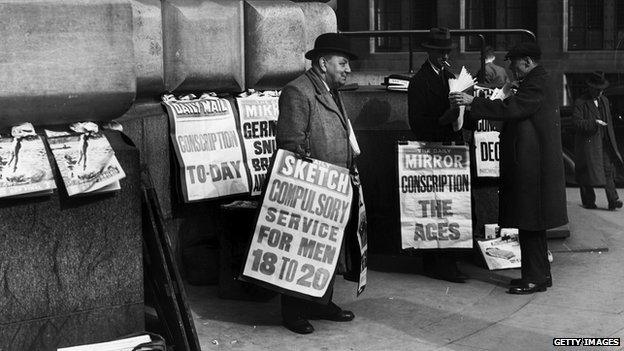
Conscription was introduced in January 1916
Details of the excuses given by men trying to avoid conscription in World War One have been released online.
The documents relate to 8,000 men whose cases were heard by the Middlesex Appeal Tribunal between 1916 and 1918.
The National Archives has digitised the papers to mark the centenary of the outbreak of the conflict this year.
They reveal the human cost of the war, as well as the attitudes of some people to those seen as trying to avoid their duty.
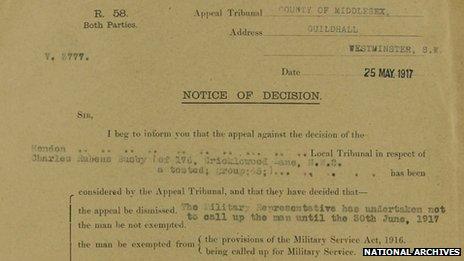
Thousands of men tried to avoid conscription
John Gordon Shallis
Munitions worker from Harlesden. His four brothers had already died in the conflict. His mother had a broken leg.
A note from the appeal tribunal chairman said: "The man concerned in this appeal... has peculiarly hard domestic circumstances. His four brothers who joined the Forces have all been killed, and the applicant lives at home to assist and support a crippled mother.
"The appellant's father is in the home defence. The local tribunal... were of the opinion that the mother is entitled to the comfort she will obtain by the retention of this last son."
His appeal was successful.
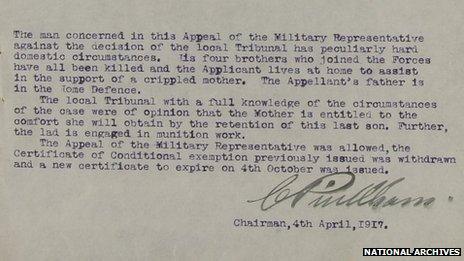
The tribunal took pity on John Shallis and his mother
Harry George Ward
Foreign correspondent and book-keeping clerk from Ponders End.
He appealed against conscription on "conscientious grounds".
He wrote: "I am an International Socialist and believe that war is a violation of the ethics of man's relationship to man."
He insisted: "If my appeal is rejected I shall still be determined to abide closely by my principles no matter what may be the penalties for refusing to obey any government order."
The tribunal chairman noted that "as a socialist, he could not possibly have a conscience".
His appeal was dismissed.
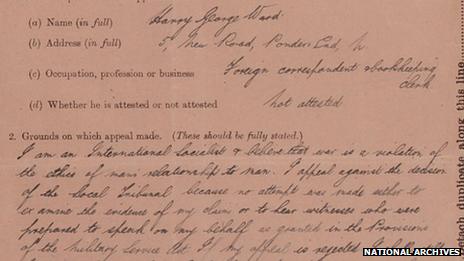
Harry Ward's appeal was rejected
Charles Rubens Busby
Master butcher, from Cricklewood.
An anonymous letter from a local resident, sent to the tribunal, calls him a "proper rotter of a man", and asks why he is allowed to keep his shop while "married men have had to shut up their shop and go".
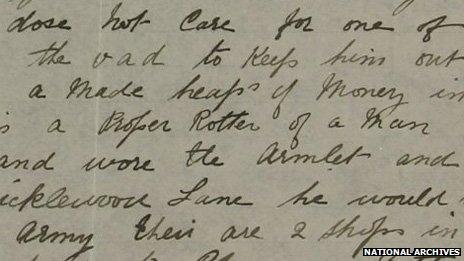
One local resident wanted Charles Busby to be conscripted
Mr Busby later served with the Royal Navy and Royal Air Force between 1917 and 1918.
Benjamin Brown
Fruiterer and greengrocer, from Brentford.
He wrote: "I have a wife and two children dependent. I have been in business in Brentford for the past 20 years. I supply well over 200 regular customers, most of whom are poor families. My wife and I are working the business without any other assistance, therefore if I am called upon for military service, I shall be forced to close the business".
The appeal tribunal chairman ruled that Mr Brown's business "could be carried on in his absence by his wife, who now actively assists him therein".
His appeal was dismissed.
- Published25 February 2014
- Published11 October 2012